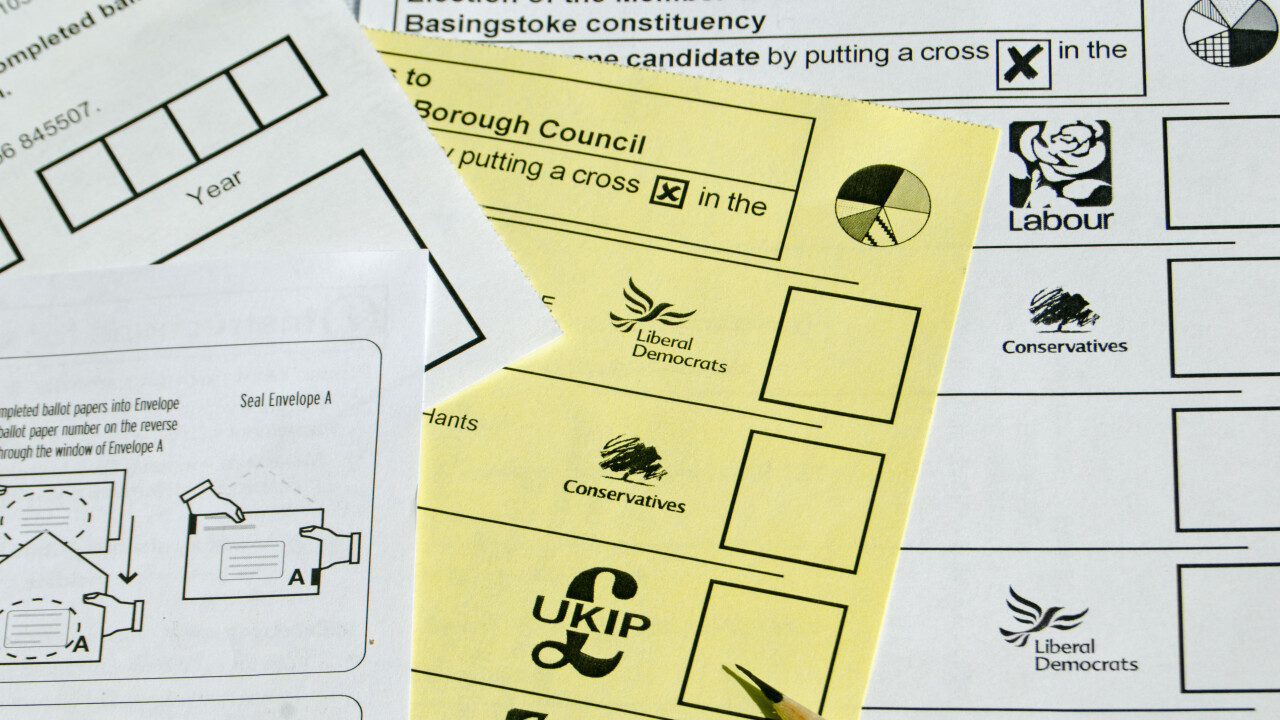
UK election law wasn’t drafted to take Twitter or Facebook into account.
The legislation is hot on how the media should handle reporting on election day – basically, keep quiet about it until the polls are closed – but, as the cliche runs, we’re all publishers now on social media.
That’s no problem if you just want to say how you personally voted. The Electoral Commission, which is responsible for supervising and implementing the regulations, told me:
A voter may volunteer information about who they voted for, provided no undue influence is exerted on them to do so. There is no explicit provision in law that prevents people from tweeting or re-tweeting that information. There is, however, provision to prevent exit polls to be published until polls have closed.
It’s that last bit that makes things tricky. If you monitor social media, collect data on what lots of people are saying about how they voted, then share that information, you’re dangerously close to presenting an exit poll.
Section 66A of the Representation of the People Act, the legislation which covers the conduct of elections, says that’s a definite no-no:
(1)No person shall, in the case of an election to which this section applies, publish before the poll is closed—
(a)any statement relating to the way in which voters have voted at the election where that statement is (or might reasonably be taken to be) based on information given by voters after they have voted, or
(b)any forecast as to the result of the election which is (or might reasonably be taken to be) based on information so given.
It continues:
(4)In this section—
“forecast” includes estimate;
“publish” means make available to the public at large, or any section of the public, in whatever form and by whatever means;
and any reference to the result of an election is a reference to the result of the election either as a whole or so far as any particular candidate or candidates at the election is or are concerned.
Putting that data out via Facebook or Twitter could certainly be seen as making it “available to the public at large”.
David Allen Green, head of media law at Preiskel & Co, says:
The prohibition on exit polls in section 66A of the Representation of the People Act appears to have been outpaced by the rise of social media.
The prohibition, backed by the criminal law, is on the publication before the polls close of forecasts based on statements of how people have voted. This had in mind surveys of voters as they left the polling booth.
But what happens when someone aggregates statements freely given on social media by voters about how they have voted, and then publishes that data to the world before polls close? In general terms, it is not difficult to imagine how such a publication could sometimes contravene section 66A.
So it seems you are on shaky ground if you tweet or retweet data from social media about how people are voting before the polls close. Let’s hope that by the time we get to the next election, the laws governing it have caught up.
Image credit: BasPhoto / Shutterstock.com
Read next: The BBC’s Election Bot will tweet you results on demand
Get the TNW newsletter
Get the most important tech news in your inbox each week.




